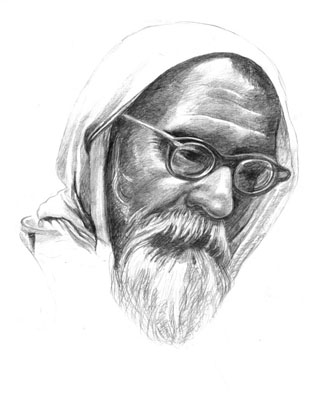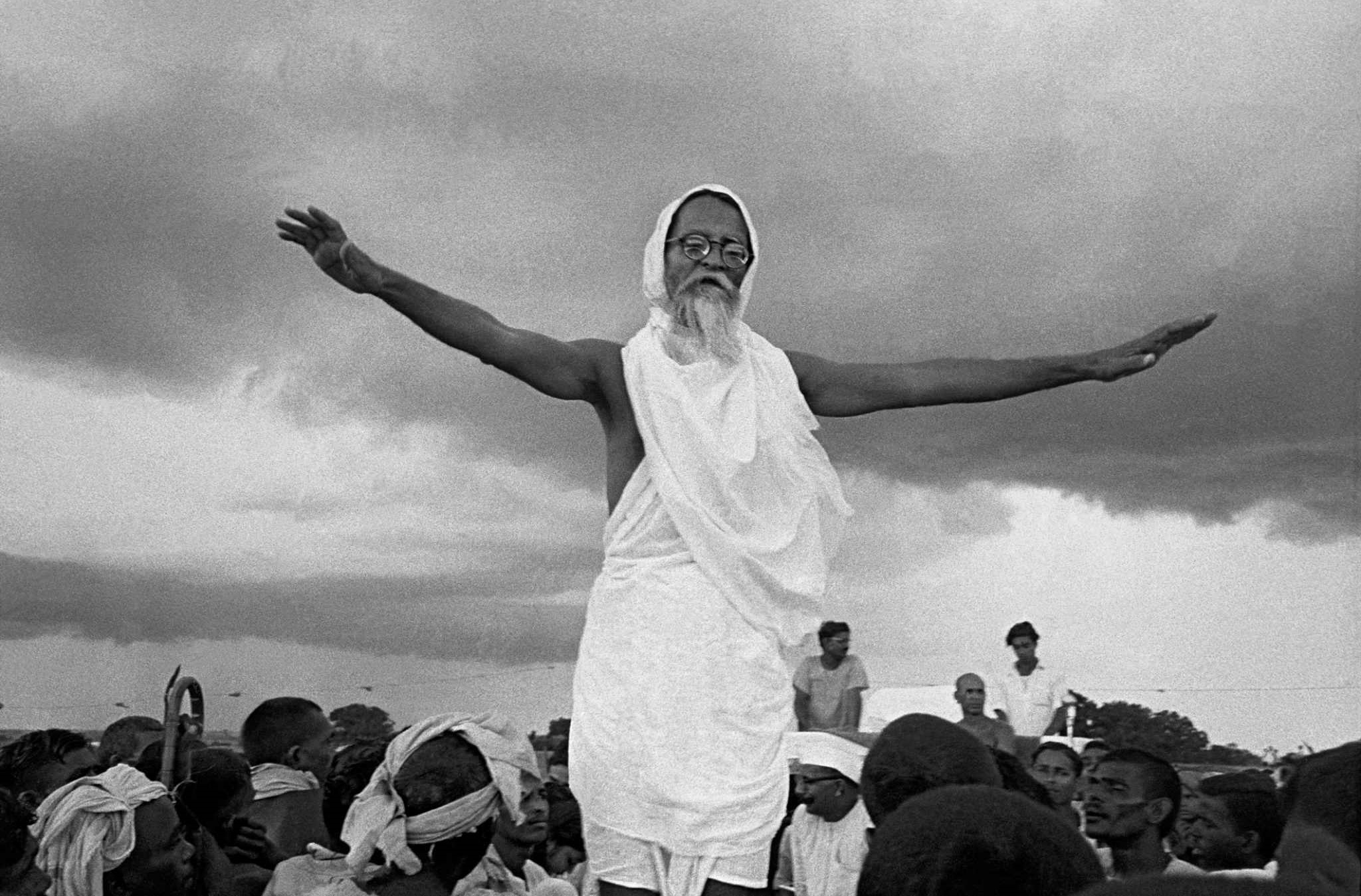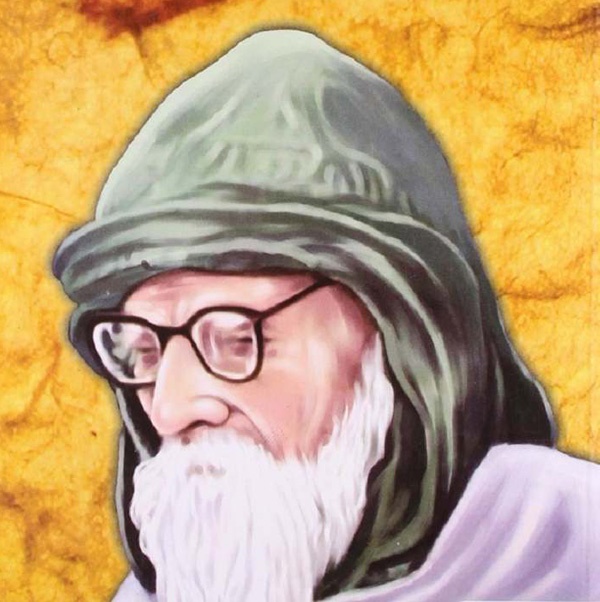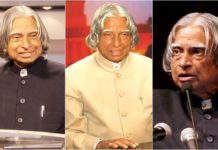Vinoba Bhave
Early Life | Career | Bhoodan Movement | Death
Vinoba Bhave is also called as “Acharya Vinoba Bhave”. Who was a scholar, saint, man of God, moral tribune, a beacon of hope and solace to millions in India and abroad He was considered as Mahatma Gandhi’s spiritual successor. His Bhoodan (Gift of the Land) movement started on April 18, 1951 attracted the attention of the world.

Vinobha Bhave’s original name was “ Vinayak Narahari Bhave.”
Childhood & Early Life
Acharya Vinoba Bhave was born in a Brahmin family on 11 September 1895 at Gagode in the former Baroda state, now the Kolaba district of Maharashtra. He was the son of Narhari Shambhurao, a textile technologist, and Rukminidevi, a devout lady. Vinayak Narahari Bhave father was very scrupulous, methodical and disciplined in his behaviour Of his parents five children, Vinayak, as Vinoba was known in his childhood, was the eldest. Vinayak’s grandfather, Shambhurao, though deeply religious, was quite progressive in his views. Vinayak was greatly influenced by him. On important festivals, Shambhurao threw the temple open even to the Harijans of the town, which required a good deal of courage during those days. Moreover, he was quite a magnanimous person, and, being a renowned vaidya, It is used to treat his patients free of charge, having renounced his family at the age of 37. He also used to employ occasionally a Muslim singer to recite bhajans before the deity. For Vinayak, it was his first lesson in social reform.
Career of Acharya Vinoba Bhave
The detail about career of Acharya Vinoba Bhave is described Below –
Association with Gandhi
Acharya Vinoba Bhave was attracted towards the principles and ideologies of the Mahatma Gandhi and he considered Gandhi his guru, from the both political and spiritual point of view. V Bhave followed Gandhi’s leadership without question.
Over the years, the bond between Acharya Vinoba Bhave and Gandhi grew stronger and his involvement in constructive programs for the society kept increasing. In a letter to Acharya Vinoba Bhave, Gandhi wrote, “I do not know in what terms to praise you. Your love and your character fascinate me and so does your self-examination. I am not fit to measure your worth. I accept your own estimate and assume the position of a father to you”. V Bhave spent a better part of his life in the ashrams set up by the leader carrying out the various programs designed by Gandhi. On April 8, 1921, Vinoba went to Wardha to take charge of a Gandhi-ashram there under the directives from Gandhi.
During his stay at Wardha, V Bhave also brought out a monthly in Marathi, named, `Maharashtra Dharma’. The monthly comprised of his essays on the Upanishads. His political ideologies were directed towards principles of peaceful non-cooperation in order to attain freedom. V Bhave took part in all the political programs designed by Gandhi and even went to participating in the same. Vinoba Bhave believed in Gandhi’s social beliefs like equality among Indians and various religions.
Participation in Independence Movement
Although he excelled in college, especially in mathematics, Acharya Vinoba Bhave left college in 1916 to begin his spiritual quest. He was attracted by Gandhi’s movement and participated in social reform efforts of the movement.
In 1924 he led a temple entry movement for untouchables in southern India and worked to remove basic socio-economic problems of industrial workers. Due to this he was jailed by British authorities in 1932. Vinoba preached Gita to his fellow prisoners. These talks were later published in the form of a book. Vinayak Narahari Bhave led the national protest campaign against Britain’s wartime policies in 1940.
Social Work
Acharya Vinoba Bhave worked tirelessly towards the social evils like in equality. Vinayak Narahari Bhave is Influenced by the examples set by Gandhi, he took up the cause of people that his guru lovingly referred to as Harijans. It was his aim to establish the kind of society that Gandhi had envisioned in an Independent India.

Acharya Vinoba Bhave adopted the term Sarvodaya from Gandhi which simply means “Progress for All”. The Sarvodaya movement under him implemented various programs during the 1950s, the chief among which is the Bhoodan Movement.
Bhoodan Movement
The Bhoodan movement and Gramdan movements was led by V Bhave attempted to bring about a “non-violent revolution” in India’s land reforms programme. These integrated movements were an attempted to implement land reforms by urging the landed classes to voluntarily surrender a part of their land to the landless. The Bhoodan movement was started in 1951. The problems faced by the landless harijans were presented to Vinayak Narahari Bhave in Pochampalli, Telangana.
In response to appeal by V Bhave, some land owing class agreed to voluntary donation of their some part of land. This led to the birth of Bhoodan Movement. Central and State governments had provided the necessary assistance to Vinoba Bhave. Later, Bhoodan movement gave way to the Gramdan movement which began in 1952. The objective of the Gramdan movement was to persuade landowners and leaseholders in each village to renounce their land rights and all the lands would become the property of a village association for egalitarian redistribution and joint cultivation. A village is declared as Gramdan when at least 75 per cent of its residents with 51 per cent of the land signify their approval in writing for Gramdan. The first village to come under Gramdan, was Magroth, Haripur, Uttar Pradesh.
The Bhoodan movement received widespread political patronage. Several state government passed laws by aimed at Gramdan and Bhoodan. The movement reached their peak around 1969. After 1969 Gramdan and Bhoodan lost its importance due to the shift from being a purely voluntary movement to a government supported programme.
In 1967, after the withdrawal of V Bhave from the movement, it lost its mass base. In the later period, landlords had mostly donated land under dispute or unfit for cultivation. The whole movement was treated as something different from the general scheme of development rather than combining with the existing institutional means. This separation from the mainstream scheme seriously affected its continuation as a policy.
Acharya Vinoba Bhave Writings

Acharya Vinoba Bhave was a scholar, thinker, and writer who produced numerous books. V Bhave was a translator who made Sanskrit texts accessible to the common man. He was also an orator and linguist who had an excellent command of several languages (Marathi, Gujarati, Hindi, Urdu, English, and Sanskrit). V Bhave was an innovative social reformer. Shri Vinoba Bhave called “Kannada” script as “Queen of World Scripts” – “Vishwa Lipigala Raani” He wrote brief introductions to, and criticisms of, several religious and philosophical works like the Bhagavad Gita, works of Adi Shankaracharya, the Bible and Quran. His criticism of Gnaneshwar’s poetry and works by other Marathi saints is quite brilliant and a testimony to the breadth of his intellect.
V Bhave had translated the Bhagavad Gita into Marathi. He was deeply influenced by the Gita and attempted to imbibe its teachings into his life, often stating that “The Gita is my life’s breath”.
Acharya Vinoba Bhave Books
Some Books of Acharya Vinoba Bhave are:
1.) The essence of Quran
2.) The essence of Christian teachings
3.) Thoughts on education
4.) Swarajya Sastra
5.) Talks on the Gita
Awards & Achievements
- In year 1958, Vinoba Bhave was the first recipient of the international Ramon Magsaysay Award for Community
- He was awarded the Bharat Ratna posthumously in 1983
- A University has been named after him, V Bhave University, located in Hazaribagh district in the State of Jharkhand.
Quotes By Vinoba Bhave
There are various Quotes ehich are saying by the Acharya Vinoba Bhave. Here is Follows –
“When a thing is true, there is no need to use any arguments to substantiate it.”
“If a man achieves victory over this body, who in the world can exercise power over him? He who rules himself rules over the whole world.”
“Do not allow yourself to imagine that revolutionary thinking can be propagated by governmental power.”
“It is only when our life proceeds within bounds and in an accepted, disciplined way, that the mind can be free.”
“In the Bhagavad Gita, there is no long discussion, nothing elaborate. The main reason for this is that everything stated in the Gita is meant to be tested in the life of every man; it is intended to be verified in practice.”
“We have seen from experience that, if we are in the habit of walking regularly on the same road, we are able to think about other things while walking, without paying attention to our steps.”
“Innumerable actions are going on through us all the time. If we started counting them, we should never come to an end.”
Death
Acharya Vinoba Bhave died on November 15, 1982 after refusing food and medicine few days earlier. Some Indians have identified this as sallekhana. Acharya Vinoba Bhave was awarded the Bharat Ratna posthumously in 1983.
Also Read
Razia Sultan Biography : Childhood | Love Life | Region | Death

























[…] Vinoba Bhave : Early Life | Career | Bhoodan Movement |… […]